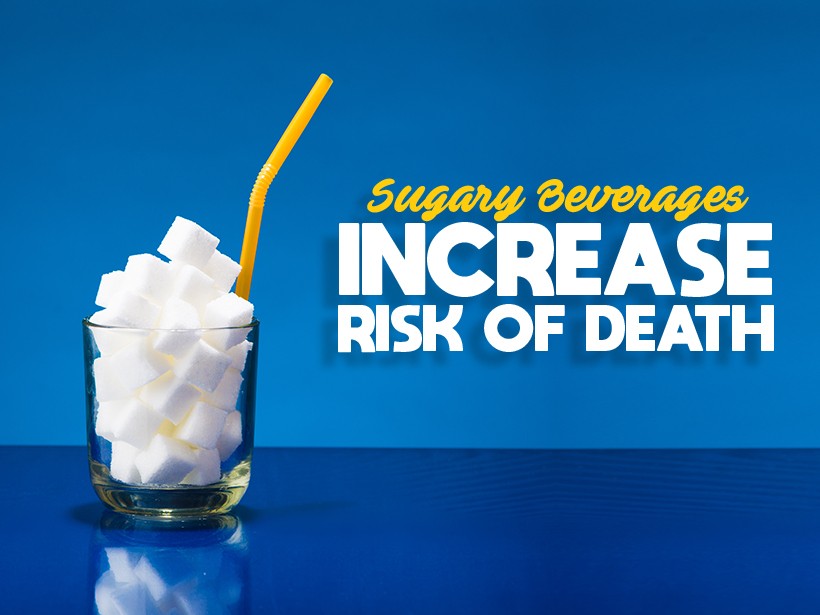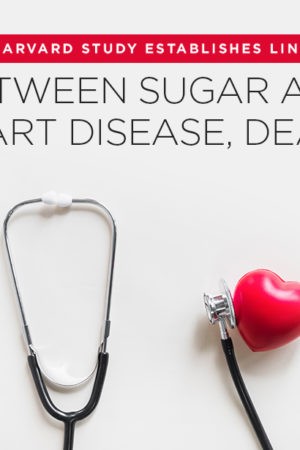It’s no secret that sugar is disastrous for our health. But a new study conducted by the American Heart Association takes that understanding a step further. Adults over the age of 45 who consume large amounts of sugary beverages have an increased risk of death from heart disease.
The study followed 30,183 individuals for six years, during which time researchers compared death records with cause of death – especially focusing on deaths from heart disease – and the individual’s self-reported diet and nutritional intake prior to death.
They found that adults who drink 24 ounces or more of sugary beverages per day had twice the risk of death from coronary heart disease compared to those who drank less than 1 ounce.1
Why Sugar is Bad for Our Health
It’s hard to exaggerate the negative health effects of sugar. It causes spikes in blood sugar, increases the risk of obesity, diabetes, and heart disease, suppresses immune response, causes tooth decay, increases stress, and accelerates aging.
People who consume the most sugar end up with the lowest intakes of the essential vitamins and minerals required to keep the body healthy. They lack Vitamin A, Vitamin C, folate, Vitamin B-12, calcium, phosphorous, magnesium, and iron, which can snowball into a host of health issues. Vitamin deficiency can lead to muscle cramps, heart arrhythmias, fatigue, weakness, dull skin, numbness in the hands and feet, inflammation, and much more.
Sugary Drinks Metabolize Differently Than Sugary Foods
Mortality outcomes were worse in people who consumed high amounts of sugary beverages – more so than those who consumed high amounts of sugary foods.
This may be because sugary beverages are typically consumed more regularly and in higher quantities than sugary foods. Furthermore, sugary drinks are metabolized faster. They don’t come with nutrients such as fats or proteins which slow metabolism and thus have a different effect on the body.
Soft Drinks and Weight Gain
People who drink sugary drinks are more likely to be obese than people who do not. A study that tracked 120,000 individuals over a 20-year period found that those who increased their sugary drink consumption by one 12-ounce serving per day gained more weight over time than people who did not change their intake.
On the flip side, significantly reducing your intake of sugary drinks leads to better weight control among those who were initially overweight.2 Obesity is a major health problem in the United States. Approximately 280,000 people die from obesity-related deaths each year.3
Lifestyle Trends That Lead to Death
This study does now show cause and effect, but it points to lifestyle trends that add up to increased risk of death. Studies show that people who consume more sugary drinks have poorer overall dietary quality. Soda drinkers have a higher probability of snacking more, purchasing more fast food, and having ready-to-eat meals in their kitchens.4
Furthermore, those who consume sugary soft drinks spend more money on sweeteners, desserts, and have a higher intake of daily calories.5 While a daily soft drink habit won’t do your health any favors, compounding lifestyle factors may contribute to increased mortality.
NUTRITIONAL DISCLAIMER
The content on this website should not be taken as medical advice and you should ALWAYS consult with your doctor before starting any diet or exercise program. We provide nutritional data for our recipes as a courtesy to our readers. We use Total Keto Diet app software to calculate the nutrition and we remove fiber and sugar alcohols, like erythritol, from the total carbohydrate count to get to the net carb count, as they do not affect your blood glucose levels. You should independently calculate nutritional information on your own and not rely on our data. The website or content herein is not intended to cure, prevent, diagnose or treat any disease. This website shall not be liable for adverse reactions or any other outcome resulting from the use of recipes or recommendations on the Website or actions you take as a result. Any action you take is strictly at your own risk.
- Love Good Fats Secures Funding and Launches in the U.S. - April 5, 2019
- Food and Beverage Manufacturers Cut Sugar Quickly - August 15, 2018
- Are Low-Carb Desserts the Next Big Thing? - July 12, 2018































